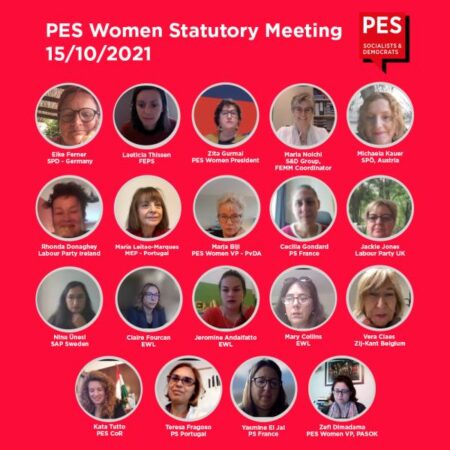This UN international observance day highlights rural women’s contribution to the economy, environment, agriculture, social structures, heritage, and culture, while also spotlighting the specific challenges they face.
For example, women have a hugely positive impact on farming, agri-tourism, innovation and conservation, yet only around 30% of farm managers in Europe are women. Many rural women work in precarious, informal employment in family businesses and are thus not always afforded the financial stability, acknowledgement and decision-making power that true gender equality demands. In addition, inadequate access to social infrastructures and to public goods and services like affordable and clean energy, public transport, nearby childcare, support for victims of gender-based violence, education and high-speed broadband in rural areas can make rural women’s situation precarious, discourage work-life balance and negatively impact their wellbeing. For example, 40% of rural households still do not have high-speed internet, potentially increasing the risk of women’s isolation in the home and making remote education or work outside the family business difficult, especially during the pandemic.
PES Women President Zita Gurmai said:
“By spotlighting the specific situations of women in rural areas, PES Women wants to focus the conversation on the fact that to achieve a Union of Equality and a feminist economy for all of Europe, the contributions of rural women must count a lot more than they currently do. And the way to do that is through both targeted support and, importantly, gender mainstreaming.
“Rural women are a perfect example of why a one-size-fits-all approach doesn’t work when it comes to policymaking for women. Gender equality policies are only good and effective if they address the specific situation of women in all walks of life. The obstacles faced by an employed woman living in a big city require different solutions to those faced by a stay-at-home single mother in a rural area.
“That is why we need to put a gender lens on all policy areas. Both national plans and EU policies, programmes and funds, such as the Common Agricultural Policy and the European Structural and Investment Funds, need to be properly gender mainstreamed in order to support rural women. Gender budgeting is the best way to ensure that women in rural areas are provided with the concrete support they need and deserve.
“Investing in rural women – from providing adequate public services like childcare and broadband to facilitating access to credit and supporting infrastructure, life-long learning and green entrepreneurship – is vital for gender equality, but also for ensuring a Just Transition and equitable recovery of all regions post-pandemic.”
Statutory members also exchanged with the European Women’s Lobby on their gender budgeting platform and discussed upcoming campaigns such as for the European Unequal Pay Day on 10 November and the International Day for the Elimination of Violence against Women on 25 November.



